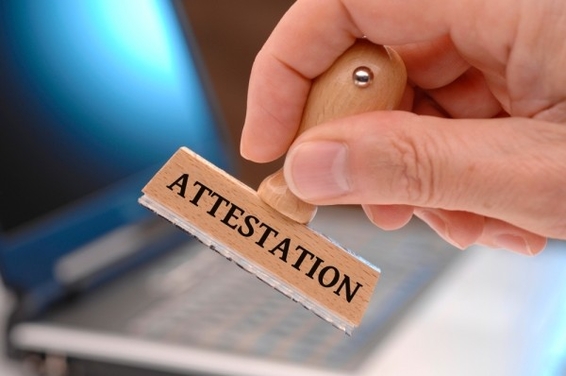Relocating to a foreign country can be a life-changing experience, filled with excitement, ambition, and a bit of anxiety about what lies ahead. For expats, especially those who aim to work, study, or establish a family abroad, an important part of the journey involves ensuring that their personal, educational, and professional documents are recognized and validated by their destination country. Ministry of Foreign Affairs (MOFA) attestation is an integral process in this validation, ensuring the authenticity and acceptance of documents across borders. But what exactly does this process entail, and why is it so essential? This article delves into the concept of MOFA attestation in Dubai, its process, and the critical role it plays for expats worldwide.
Understanding Ministry of Foreign Affairs (MOFA) Attestation
At its core, MOFA attestation is an official verification process carried out by the Ministry of Foreign Affairs of a country to authenticate documents for international use. This process essentially serves as a stamp of approval, confirming that the document is genuine and that its holder is legally entitled to the claims made within it. From birth certificates and marriage licenses to educational degrees and employment records, any official document that might be required in a foreign country could undergo MOFA attestation to verify its validity.
Typically, MOFA attestation occurs after several other attestation processes. Documents may first be attested by local government agencies, notaries, or even the embassy of the destination country. MOFA attestation is often the final step in the chain, providing an official seal that signifies complete government authentication of a document, making it ready for recognition abroad.
Why is MOFA Attestation Essential for Expats?
For those planning to live, work, or study abroad, MOFA attestation is not merely a formality; it’s a fundamental requirement for legal recognition in a foreign country. Here’s a look at why MOFA attestation is so essential for expats:
-
Legal Validation of Documents In many countries, only government-certified documents are legally valid. MOFA attestation gives documents the stamp of authenticity needed to be accepted by foreign government bodies, employers, universities, and other institutions. Without MOFA attestation, the authenticity of important documents such as birth certificates, marriage certificates, and educational degrees might be questioned, making it challenging to navigate various official procedures abroad.
-
Employment Opportunities For expats seeking employment overseas, especially in countries with strict labor regulations, authenticated documents are mandatory. Employers often require attested educational and professional certificates to confirm the qualifications and experiences of foreign hires. In regions like the Middle East, MOFA attestation is often a prerequisite for work permits and job contracts, as it assures employers that a candidate’s credentials are genuine and legally verified.
-
Educational Pursuits For students looking to study abroad, MOFA attestation is crucial for the acceptance of their academic records, such as transcripts and diplomas. Universities and colleges abroad require verified credentials to validate an applicant’s educational background, and in many cases, attested documents are necessary for scholarship eligibility or financial aid. MOFA attestation ensures that these academic records are officially recognized, paving the way for students to pursue their education seamlessly in a foreign country.
-
Immigration and Residency Immigration procedures often involve a comprehensive review of an applicant’s background, which includes personal and family documents like birth certificates, marriage certificates, and police clearance certificates. Without MOFA attestation, these documents may be considered invalid, potentially hindering an expat’s ability to secure residency or family visas. For families moving abroad together, MOFA-attested documents ensure that spouses and children are legally acknowledged, making it easier to establish a home in a new country.
-
Business and Financial Matters For expats interested in establishing businesses abroad, authenticated documents are a must. Business registration, property acquisition, and even setting up bank accounts often require MOFA-attested documents to verify an individual’s identity and legal standing. Without these verified documents, expats might face challenges in securing approvals or financial backing, which could impact their entrepreneurial pursuits and financial activities overseas.
Key Types of Documents that Require MOFA Attestation
Different types of documents may require MOFA attestation based on an expat’s specific goals and circumstances. Here are some of the primary document types that often undergo MOFA attestation:
-
Personal Documents
- Birth Certificates: Essential for establishing identity, especially for children accompanying expat families.
- Marriage Certificates: Required for spousal visas, family residency, and various legal procedures.
- Medical Certificates: Needed for healthcare access or for meeting specific health requirements mandated by certain countries.
- Police Clearance Certificates: Often required by countries to ensure an applicant’s good conduct and background for residency or employment.
-
Educational Documents
- Degree Certificates: Essential for verifying educational qualifications and eligibility for professional roles.
- Diplomas and Transcripts: Required by educational institutions to confirm academic achievements and qualifications.
- Professional Certifications: Often needed in fields where licensing or accreditation is mandated, such as healthcare or engineering.
-
Commercial Documents
- Business Registration Certificates: Needed for establishing a business entity in a foreign country.
- Power of Attorney: Important for delegating authority to a representative, especially in financial or property matters.
- Commercial Invoices and Trade Documents: Required for facilitating international trade and ensuring customs compliance.
The MOFA Attestation Process
While MOFA attestation procedures may vary slightly from country to country, the basic steps generally follow a similar pattern:
-
Step 1: Document Preparation and Notarization Before undergoing MOFA attestation, documents need to be in the appropriate format and must often be notarized by a public notary. This initial step verifies that the document is original or a true copy.
-
Step 2: Authentication by Local Authorities Documents then proceed to relevant government bodies for further authentication. For example, educational certificates may need verification by the country’s Department of Education, while birth or marriage certificates might require verification by a local municipal authority or home department.
-
Step 3: Embassy Attestation (If Required) In some cases, documents may need to be attested by the embassy of the destination country located in the expat’s home country. This step is often required to verify that the documents meet the standards and criteria of the destination country’s legal framework.
-
Step 4: MOFA Attestation The final step involves submitting the documents to the Ministry of Foreign Affairs in the expat’s home country. MOFA will review the documents, verify previous attestations, and then stamp or seal the documents to confirm their authenticity for use abroad.
Challenges and Tips for MOFA Attestation
While MOFA attestation is essential, it can also be a time-consuming and complex process. Expats may face several challenges along the way, including long processing times, multiple visits to different offices, and even high fees. Here are a few tips to help make the process smoother:
- Start Early: Given the potential delays, it’s best to start the attestation process well before your planned move.
- Use Professional Services: Many expats find it helpful to hire professional attestation services to manage the process efficiently and avoid pitfalls.
- Keep Copies: Always keep copies of attested documents to avoid needing re-attestation, which can be costly and time-consuming.
The Impact of MOFA Attestation on an Expat’s Life Abroad
MOFA attestation serves as the gateway to many aspects of life abroad, from legal residency and employment to business opportunities and family unification. The impact of this attestation is substantial, as it enables expats to engage fully in the social, professional, and economic life of their host country.
Through MOFA attestation, expats can seamlessly transition into a new cultural and regulatory environment, confident that their credentials are recognized and that they have met the legal requirements for residency, work, and study. This official validation helps build trust and acceptance within foreign communities, ensuring that expats can establish themselves smoothly and securely abroad.
Conclusion
In an increasingly globalized world, where people cross borders for better opportunities, education, and a higher quality of life, MOFA attestation remains a critical process. For expats, this attestation is more than a bureaucratic step; it’s the key to opening doors in a foreign land, enabling them to live, work, and grow with confidence and security. Whether pursuing professional success, academic goals, or family life, MOFA attestation assures expats that their most valuable documents are legally recognized, granting them the peace of mind to embrace their new journeys fully.




